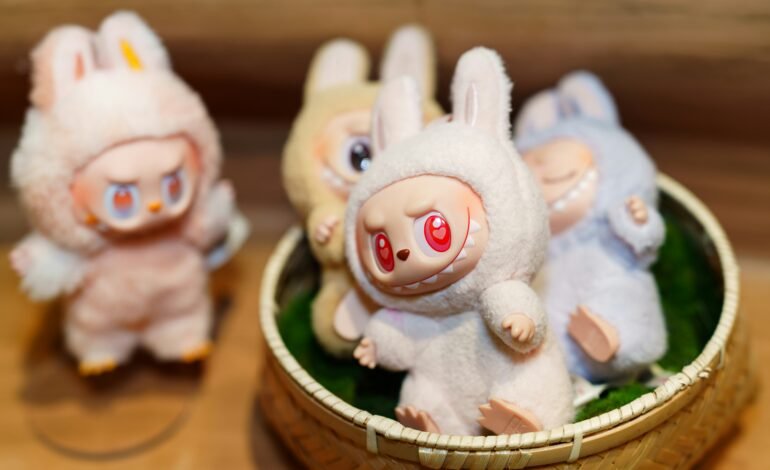Pop Mart follows the Disney recipe to immortalize Labubu
Pop Mart, creator of the viral Labubu, seeks to replicate the Disney model: transforming a trendy toy into a global franchise with content, merchandising, and experiences.

Photo of Declan Sun in Unsplash
The Chinese companya Pop Mart, creator of the viral collectible figure Labubu, announces that it will shift its pace to transform instant success into a long-lived global brand, following the example of Disney and its management of intellectual property (IP).
The Labubu phenomenon
Labubu is part of The Monsters, a series of dolls sold in “blind boxes” (blind boxes) — buyers don't know which version of the character they'll receive. This formula of surprise, combined with a distinctive aesthetic (hairy monsters, pointy teeth, big ears), has been key to its viral success.
Celebrities such as Lisa (Blackpink), Rihanna, Kim Kardashian, among others, have contributed to its popularity by publicly displaying their Labubu, which strengthened the product's presence on social media.
From virality to a sustainable model
Si De, Pop Mart's chief executive and co-COO, said the company has learned from Disney about the value of operating an IP long-term, even "for up to a hundred years," like Mickey Mouse.
The strategy will be to diversify Labubu's use beyond toys: content, entertainment, merchandising, theme parks, exhibitions, brand collaborations, and product enhancements.
Furthermore, Pop Mart isn't focused on seeking another immediate viral hit, but rather on building 5 to 10 IPs that can have sustained value like Labubu.
Financial results and latent risks
- Sales of the series The Monsters, of which Labubu is a part, contributed almost 35% of % of the revenue in the first half of 2025.
- Global revenue grew by around 204% year-over-year in the first half of the year.
- However, analysts warn of the risks: a heavy reliance on a single character always poses vulnerability if the trend cools, as well as operational challenges when scaling merchandise, content, and experiences that require significant investment and strong quality control.
Looking to the future
Pop Mart has already taken concrete steps: opening physical stores with exhibitions, collaborating with international brands, and exploring entertainment options such as audiovisual content and theme parks.
It also faces increasing competition in the Chinese art/collectible toy market, where other brands such as Miniso or 52 Toys are developing their own original IPs.
For more stories like this, follow More Latin.
Sources:
